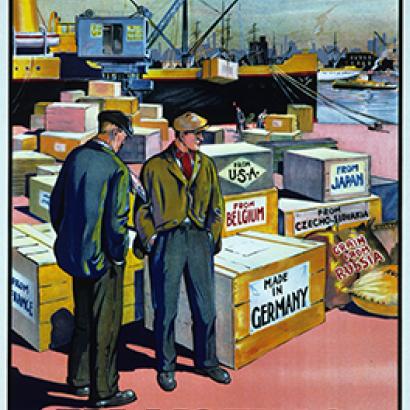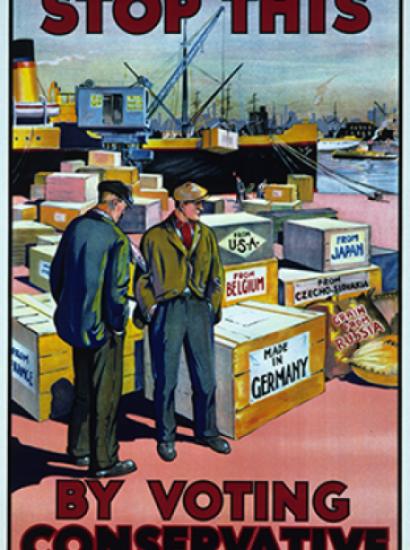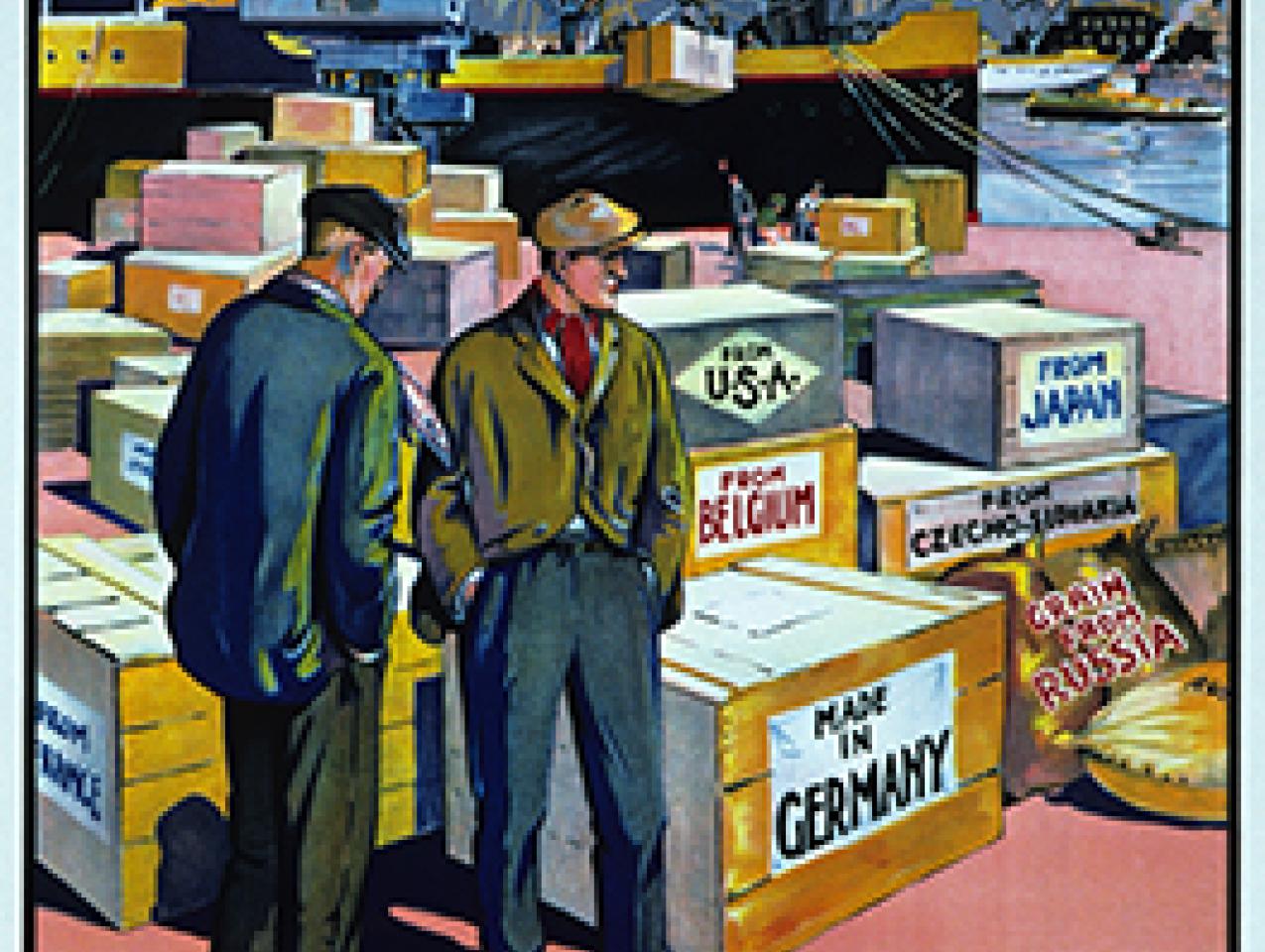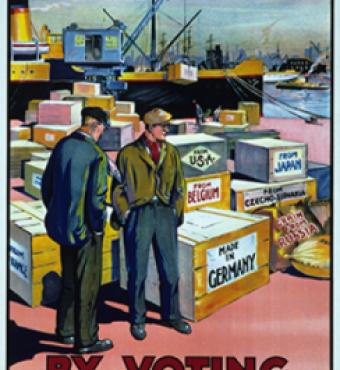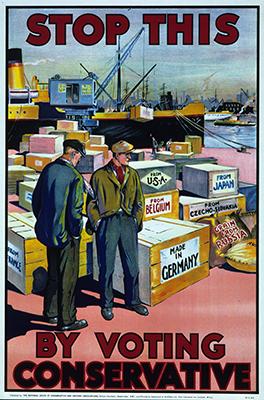- Economics
- History
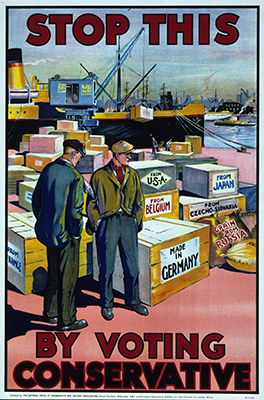
Economic embargoes and targeted sanctions have a long but mixed legacy as tools of statecraft. The first major American attempt to employ sanctions dates back as far as the Embargo Act of 1807, which intended to punish Great Britain and France for interfering with American shipping during the Napoleonic phase of the wars of the French Revolution. Economic sanctions have become increasingly popular as a way of achieving a variety of goals—deterrence, coercion, the protection of human rights, raising the cost of aggression, bolstering allies, virtue-signaling or choosing the least bad means for addressing an international threat when the alternatives of doing nothing or resorting to force appear worse. The United States now employs sanctions of varying comprehensiveness and severity against more than thirty countries and terrorist entities, including Russia, Syria, Iran, Cuba, and North Korea. The effectiveness of these measures depends on an interplay of variables—the definition of success, the comparative leverage of the parties, the breadth and depth of the coalition imposing them, the availability of alternative economic outlets for the target state, the implacability of the target state’s political will, and the risk-threshold of the target state’s leadership. What works is largely case specific, defying easy generalization.
These caveats notwithstanding, the American experience yields several provisional lessons that ought to inform whether, when, and how the United States employs sanctions.
- Sanctions can supplement but not serve as a substitute for a comprehensive strategy to defeat, deter, or incentivize an adversary to change its behavior. Without the credible threat of force as an alternative, sanctions will not only fail, but often incite their target to engage in more provocative behavior. The Embargo Act of 1807 offers a cautionary tale violating every condition conducive to success. The United States still in its formative years—a weak power in the world of the strong—lacked the economic clout to persuade the British and the French to cease their predations on American shipping. On the contrary, the embargo inflicted far more economic distress on the United States than on Britain and France. American exports plummeted 75 percent and imports by 50 percent, spurring a secessionist movement in New England, which was hardest hit by the unintended effects of the embargo. Making matters worse, President Jefferson’s aversion to building a blue water navy deprived the United States simultaneously of any credible military deterrent or response to Britain and France flaunting American neutrality rights.
- The effectiveness of sanctions not only depends on the economic and military leverage, but also the will and capability to impose third party sanctions on countries that could undermine their impact. The combination of President Trump’s debilitating sanctions on Iran, and his largely successful threat to punish the usual third-party EU suspects otherwise unwilling to sanction Iran, have caused oil exports to plummet by 80 percent and compelled Iran to reduce military spending by 20 percent in 2018, reports Rebeccah L. Heinrichs in the National Review: “That’s bad news for the Shiite paramilitary forces operating under the auspices of Iran’s Revolutionary Guard (IRGC), which have fomented chaos in Iraq, Syria, Lebanon, and Yemen, to the Islamic Republic’s advantage.”1 However, as Walter Russell Mead warns in the Wall Street Journal, the “mix of military restraint and punishing sanctions that has worked well to date depends on the will and capability to fight should the Iranians take the President’s warnings not to transgress certain red lines as a bluff.”2
- Even effective sanctions can have the unintended consequence of precipitating aggression it intended to deter. By most accounts, President Roosevelt’s imposition of a comprehensive embargo on Japan in the summer of 1941—including aviation fuel—confronted a militarist Japanese regime imbued with the code of militant Bushido with the stark choice of fighting or abandoning its implacable ambitions to create a Greater East Asia Co-Prosperity Sphere. The combination of Japan’s evanescent military superiority, the anticipation of a German victory in Europe, the underestimation of American political will, and the effects of sanctions impelled Japan to undertake its fatal blunder of attacking Pearl Harbor—a tactically brilliant but strategically catastrophic enterprise.
- Even effective embargos reach a point of diminishing returns. Although, for example, the UN embargo on Iraq after 1991 succeeded in weakening substantially Saddam’s ability to reconstitute his conventional military powers, sanctions alone had become counterproductive by 2003 because of their increasing porousness and disproportionate harm to innocent Iraqi civilians without commensurate benefit. Statesmen should appraise and reappraise whether the benefits of the embargo exceed the harm to Americans, to innocents, and to allies.
- Sanctions work best by enlisting the broadest coalition of the willing to impose them consistent with the mission, without making them hostage to the lowest common denominator of an international consensus. With rare exceptions, the United States should therefore avoid the United Nations as a mechanism for any sanctions it deems necessary to address a serious threat because of the gridlock organic to the United Nations Security Council authorized to impose them. Making the UN the arbiter of legitimacy for how and when to use force or employ sanctions would make American foreign policy hostage to the vetoes of Russia, China, and France—a condition no sane American statesman could countenance.
- Beware of artificially high measures of success or virtue-signaling without regard to consequences of sanctions. There are valid metrics for the success of sanctions well short of ending a crisis, bringing down a regime, or taming the bellicosity of a target country. Sanctions will meet the test of strategic prudence if they raise the cost of aggression and/or reassure allies more than they hurt Americans or innocents. Reagan’s re-imposition of sanctions with bite on the Soviet regime in the early 1980’s succeeded—in combination with other measures, including a massive military buildup, a resurgent American economy, and a revival of unapologetic American exceptionalism––in intensify the cumulative pressure that induced the Soviet regime to take a chance on a reformer such as Gorbachev. Conversely, good intentions alone do not suffice to justify sanctions morally or strategically when the benefits are meagre and the cost in moral or material terms are significant.
- In deciding whether to impose sanctions, therefore, decision-makers should assess rigorously the relationship between ends and means, and the anticipated versus unanticipated consequences of alternative courses of actions. Have we calculated prudently whether sanctions hurt our enemy more than they hurt us? Do we have the requisite political will, military capability, and strategic clarity to integrate sanctions deftly into a broader strategy including force and diplomacy? Do we have a compelling standard for determining success, and the flexibility to recalibrate sanctions we impose based on changing circumstances?
Ultimately, economic embargoes are no panacea—useful if judiciously employed, a menace if not.







